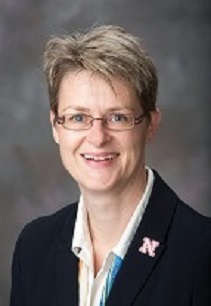
To what extent does military service relate to STEM degrees and occupations? Are these associations gendered and racialized? Join us on Oct 5th as Regina Werum shares insight into these questions and more.
Title
Collaborative Research: Soldiers to Citizens… to Scientists? How Military Service is related to STEM Outcomes.
Abstract
Research shows that -- independently from one another -- both military service and science, technology, engineering, and mathematics (STEM) fields serve as a social mobility pathway for underrepresented groups, including first-generation college graduates, women, rural and ethnic minorities. This project addresses the extent to which military service shapes (or is associated with) educational and occupational outcomes, particularly in STEM fields. Research objectives: (1) To what extent does military service relate to STEM trajectories in terms of degrees and occupations? (2) To what extent are these associations gendered and racialized? And to what extent do these patterns help broaden participation in STEM fields? (3) How does using competing definitions of STEM fields employed by federal agencies affect the form and magnitude of the above patterns? To address these questions, this project analyses a multi-year American Community Survey/ACS sample (2014-2018).
Results suggest strongly gendered patterns: Veteran status is associated with higher odds of completing STEM degrees, particularly for female veterans. Analyses also show that how we define and measure STEM shapes empirical findings. While the advantage for female veterans persists regardless of the STEM definition used, the size of this effect varies depending on the STEM definition used. These findings highlight how conceptual differences in STEM definitions used by key federal agencies, usually left implicit, may help explain differences in the degree to which persistent inequalities in STEM are identified, interpreted, and addressed. We situate these findings in light of extant empirical and theoretical research on pathways into STEM.
When we explicitly compare veterans and civilians across ethno-racial and gender groups, results suggest that -- regardless of the STEM definition -- veteran status consistently boosts women’s odds of earning a STEM degree. For men, this boost is limited to white veterans, and actually decreases the odds of earning a STEM degree for Asian men. Yet, a persistent gender gap, whose size varies depending on the STEM definition, continues to privilege men’s overall odds of earning a STEM degree. These findings expand extant research on the determinants of intersectional patterns in the STEM pipeline.
With regard to the relationship between military service and STEM-related occupational outcomes, we find far looser coupling than for degrees. Nonetheless, some of the main findings persist: Military service does increase the odds of STEM occupational outcomes, gender differences persist in the relationship between military service and STEM occupations, and the measurement and operationalization of STEM occupation affects the patterns observed. This pattern is particularly prevalent among veterans without STEM degrees. Indeed, even veterans without college degrees outpace their peers in STEM employment, which suggests that practical experiences gained in the military impact subsequent job outcomes.
Our findings also highlight that conceptual differences in STEM definitions used by key federal agencies, usually left implicit, may help explain substantive and substantial differences in the direction and the degree to which persistent inequalities in the STEM pipeline are identified, interpreted, and addressed.
Thurs, 10/5/2023, from 2-3 pm CT
Bessey 109 or via zoom at
https://unl.zoom.us/j/212107342